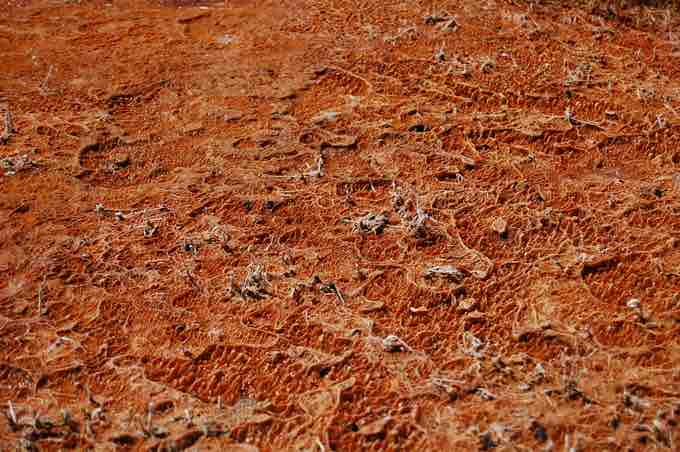Microbes and Ecosystem Niches
Microbial life is amazingly diverse and microorganisms quite literally cover the planet. In fact, it has been estimated that there are 100,000,000 times more microbial cells on the planet than there are stars in the observable universe! Microbes live in all parts of the biosphere where there is liquid water, including soil, hot springs, the ocean floor, acid lakes, deserts, geysers, rocks, and even the mammalian gut.
By virtue of their omnipresence, microbes impact the entire biosphere; indeed, microbial metabolic processes (including nitrogen fixation, methane metabolism, and sulfur metabolism) collectively control global biogeochemical cycling. The ability of microbes to contribute substantially to the function of every ecosystem is a reflection their tremendous biological diversity .

A Biofilm of Thermophilic Bacteria
Thermophiles, which thrive at relatively high temperatures, occupy a unique ecological niche. This image shows a colony of thermophilic bacteria at Mickey Hot Springs in Oregon, USA.
Microbes are vital to every ecosystem on Earth and are particularly important in zones where light cannot approach (that is, where photosynthesis cannot be the basic means to collect energy). Microorganisms participate in a host of fundamental ecological processes including production, decomposition, and fixation. They can also have additional indirect effects on the ecosystem through symbiotic relationships with other organisms. In addition, microbial processes can be co-opted for biodegradation or bioremediation of domestic, agricultural, and industrial wastes, making the study of microbial ecology particularly important for biotechnological and environmental applications.
Each species in an ecosystem is thought to occupy a separate, unique niche. The ecological niche of a microorganism describes how it responds to the distribution of resources and competing species, as well as the ways in which it alters those same factors in turn. In essence, the niche is a complex description of the ways in which a microbial species uses its environment.
The precise ecological niche of a microbe is primarily determined by the specific metabolic properties of that organism. For example, microbial organisms that can obtain energy from the oxidation of inorganic compounds (such as iron-reducing bacteria) will likely occupy a different niche from those that obtain energy from light (such as cyanobacteria). Even among photosynthetic bacteria, there are various species that contain different photosynthetic pigments (such as chlorophylls and carotenoids) that allow them to take advantage of different portions of the electromagnetic spectrum; therefore, even microbes with similar metabolic properties may inhabit unique niches.